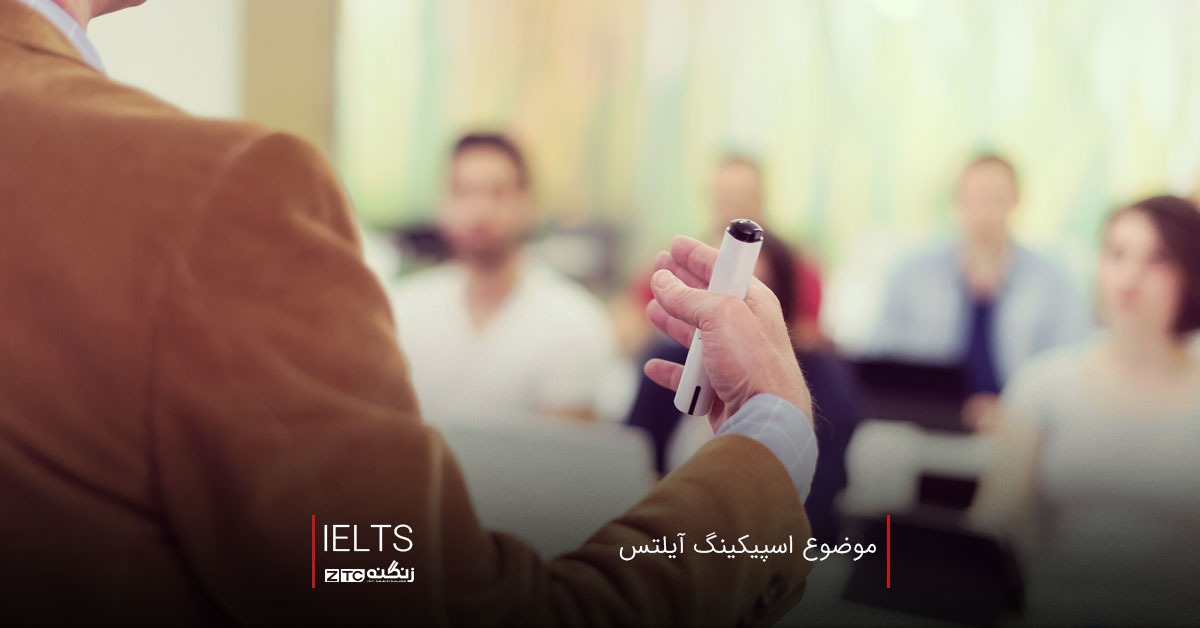حتی اگر تصمیم به ثبت نام ندارید...
با پر کردن این فرم یا با تماس با 02145328 صمیمانه و با تمام وجود در کنار شما خواهیم بود.

زمان مطالعه: 14 دقیقه
تاریخ ایجاد: 26 بهمن 1399
تاریخ بروز رسانی: 4 آبان 1404
زمان مطالعه: 14 دقیقه
تاریخ ایجاد: 26 بهمن 1399
تاریخ بروز رسانی: 4 آبان 1404
پیدا کردن نمونه سوالات آیلتس با جواب برای موضوعات پرتکرار مانند کار، تحصیل و تفریحات، کلید موفقیت شما در مصاحبه شفاهی (Speaking) است؛ بهترین پاسخها معمولاً مختصر، دارای دامنه لغوی مناسب (Vocabulary) و ساختارهای گرامری پیچیده (مانند جملات شرطی یا مجهول) هستند که مستقیماً به سؤال پاسخ میدهند، اما با جزئیات و مثالهای شخصی همراه میشوند تا روان و طبیعی به نظر برسند.
برای دستیابی به نمره بالا در بخش اسپیکینگ، باید پاسخهای خود را برای این سه حوزه اصلی تمرین کنید. در اینجا نمونههای کوتاهی از پاسخهای ایدهآل برای هر بخش ارائه شده است.
سؤال رایج: 'Do you enjoy your job?' (آیا از شغل خود لذت میبرید؟)
پاسخ نمونه: 'Absolutely, I find my current role as a [شغل خود را بگویید] incredibly fulfilling. What I particularly appreciate is the dynamic nature of the work, which prevents any sense of monotony. For instance, last month, I had the opportunity to spearhead a new project, which was both challenging and deeply rewarding. While there are occasional high-pressure deadlines, the overall sense of professional growth makes it worthwhile.'
نکات کلیدی: استفاده از صفتهای قوی (incredibly fulfilling, dynamic)، استفاده از اصطلاح (spearhead)، و بیان دلیل (sense of professional growth).
سؤال رایج: 'What is your favorite subject and why?' (درس مورد علاقه شما چیست و چرا؟)
پاسخ نمونه: 'My favorite subject throughout my academic career has undoubtedly been Economics. I'm naturally drawn to understanding the macro-level forces that dictate how societies allocate resources. Unlike subjects that rely heavily on rote memorization, Economics requires critical thinking and analytical skills.1 Furthermore, being able to connect theoretical models, such as supply and demand curves, to real-world events, like inflation, is something I find endlessly fascinating.'
نکات کلیدی: استفاده از واژگان تخصصیتر (macro-level forces, rote memorization)، استفاده از ساختار مقایسه/تضاد (Unlike subjects that rely on...)، و بیان علاقه شخصی (endlessly fascinating).
سؤال رایج: 'What do you like to do in your free time?' (در اوقات فراغتتان چه کاری دوست دارید انجام دهید؟)
پاسخ نمونه: 'In my downtime, I tend to immerse myself in outdoor activities, primarily hiking. I consider it my primary way to de-stress and recharge. There's nothing quite like the feeling of reaching a summit after a strenuous climb; it offers a powerful sense of accomplishment. On less active days, I might occasionally pick up a novel, though my preference is definitely for activities that offer a complete mental break from routine.'
نکات کلیدی: استفاده از اصطلاحات روان (downtime, de-stress and recharge)، استفاده از عبارتهای فعلی (immerse myself in)، و بیان هدف فعالیت (complete mental break).
هفت روز هفته، از ساعت ۸ صبح تا 9 شب
📞 تماس بگیرید: 021-45328
برای موفقیت در سوالات آیلتس، صرفاً حفظ کردن پاسخها کافی نیست؛ شما باید آنها را شخصیسازی کرده و از تکنیکهای زیر بهره ببرید.
هر پاسخ در بخش اسپیکینگ باید از ساختار سادهای پیروی کند تا از تککلمهای جواب دادن اجتناب کنید:
به جای کلمات ساده، از همنشینیهای کلمهای (Collocations) و کلمات سطح بالاتر استفاده کنید:
| کلمه ساده | جایگزین پیشرفته |
|---|---|
| Good | Exceptional, Rewarding |
| Busy | Swamped, Hectic |
| Important | Crucial, Paramount |
همیشه از ساختار فاعل-فعل-مفعول استفاده نکنید. برای نشان دادن تسلط، از ساختارهای زیر استفاده کنید:
برای موفقیت در آزمون Speaking آیلتس، به خصوص در مواجهه با موضوعات رایج مانند کار، تحصیل و تفریحات، صرفاً دانش زبان انگلیسی کافی نیست؛ شما باید به صورت استراتژیک پاسخ دهید. این بدان معناست که از پاسخهای تک کلمهای اجتناب کنید، از دایره لغات سطح بالا (باند ۷ به بالا) به شکلی طبیعی و مرتبط استفاده کنید و با ارائه مثالهای شخصی، پاسخهای خود را منحصربهفرد سازید. با تمرین این نمونهها و شخصیسازی آنها با جزئیات زندگی خود، آمادگی لازم برای کسب نمره مطلوب را در هر سه بخش آزمون اسپیکینگ به دست خواهید آورد.
آیا از پاسخهای کلیشهای و نمرهآور در آزمون اسپیکینگ آیلتس خسته شدهاید؟ آیا میدانید که بهترین نمونه سوالات آیلتس با جواب چگونه باید شخصیسازی شود تا نمره شما را به باند ۷ یا بالاتر برساند؟
موسسه زنگنه، مقصد نهایی شما برای تسلط بر آیلتس Speaking است. ما میدانیم که یک پاسخ عالی، فراتر از حفظ کردن است؛ بلکه نیازمند استفاده استراتژیک از واژگان پیشرفته، ساختارهای پیچیده و البته ارائه مثالهای شخصیسازی شده در موضوعات رایج (کار، تحصیل، تفریحات) است.
چرا مشاوره با زنگنه انتخاب نهایی شماست؟
1. تجزیه و تحلیل پاسخهای شما: کارشناسان ما پاسخهای تمرینی شما را دقیقاً بر اساس معیارهای نمرهدهی آیلتس (Fluency, Lexical Resource, Grammatical Range, Pronunciation) ارزیابی میکنند.
2. شخصیسازی محتوا: ما به شما یاد میدهیم چگونه الگوهای پاسخدهی را فراگرفته و آنها را با تجربیات منحصر به فرد خود ترکیب کنید تا پاسخهایتان طبیعی و در عین حال پیشرفته باشند.
3. تمرکز بر موضوعات پرتکرار: تمرین هدفمند روی سوالات آیلتس مربوط به کار، تحصیل و تفریحات با ارائه پاسخهای حرفهای و آماده برای استفاده فوری.
همین امروز برای مشاوره اختصاصی رزرو کنید و قدم بعدی را برای کسب نمره دلخواهتان بردارید.
📞 برای رزرو وقت مشاوره تخصصی آیلتس با موسسه آموزشی زنگنه تماس بگیرید یا وبسایت ما را دنبال کنید.
حتی اگر تصمیم به ثبت نام ندارید...
با پر کردن این فرم یا با تماس با 02145328 صمیمانه و با تمام وجود در کنار شما خواهیم بود.